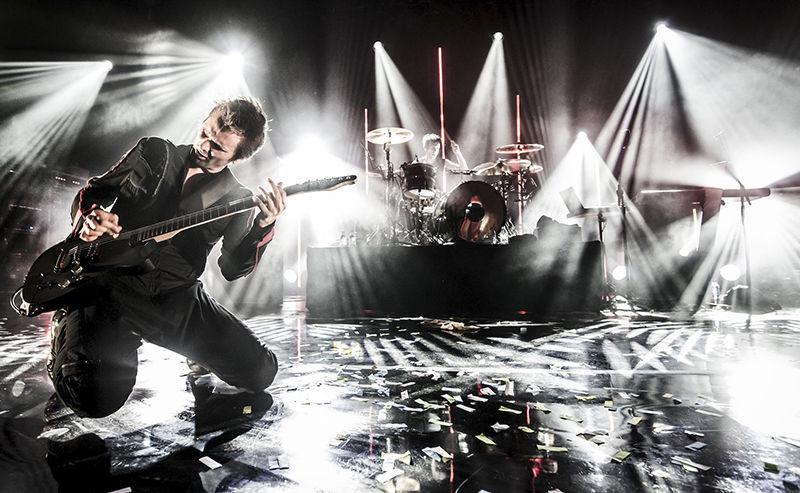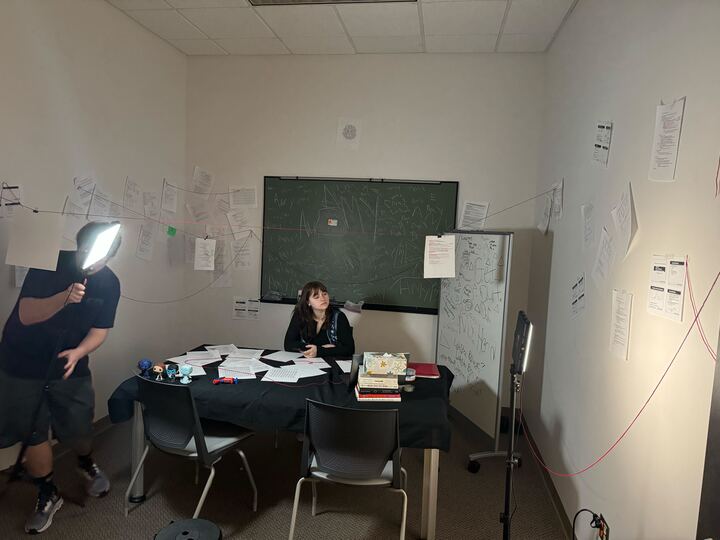You already know if you are going to like Muse’s new album, “Drones.” Here’s a hint: it sounds like Muse.
For fans of stadium rock, with its big venues and even bigger riffs, Muse has been a solid act for nearly two decades. Their live shows are a thing of mad spectacle and the band is well aware; their music is built with the nosebleed section in mind. It’s large, loud and almost completely without nuance.
Their music feels built. Constructed. Something that follows a blueprint. Verse, chorus, verse, chorus, bridge, outro. Not all formula is negative — as formulas only emerge when they are deemed successful — but “Drones” is such a re-tread of the past decade of rock that it’s like stepping into a broken time machine. It brings you to the past, but the music is only recognizable to the point of being forgettable.
Unfortunately, the production on “Drones” is crunched and compressed to oblivion. When the blaring guitar isn’t drowning out the bass and the drums, the vocals are. It sounds like multiple instruments slammed into one — a frankenstein-esque mish-mash of strings and chords. The fact that it’s mixed for maximum volume is almost tragic; no matter how loud the track is playing, I can’t tell what’s going on.
And so the record spins, flipping from macho, heavy rock to piano-inspired ballads and back again. The first half of the record features a majority of guitar-driven tracks, opening with the pop-inspired song “Dead Inside,” and then sliding right into “Psycho,” a testosterone-laden rock tune with some of the worst lyrics I’ve ever heard (“Are you a psycho killer?/ Say I’m a psycho killer!” and, “Your ass belongs to me now!”).
Following that, “Mercy” brings the party back down a notch, substituting heavy guitar riffs for a piano melody that bursts into a chorus sweet as candy and every bit as hollow.
The vocals, drenched in a falsetto, avoid any sense of specificity or precision, opting instead to paint a general picture. Matthew Bellamy, the group’s singer and lyricist, spouts off about “absent gods and silent tyranny” like a deranged conspiracy theorist, but it’s never qualified or defined.
The album title is “Drones,” after all. It’s a title sparked from fear, the knee-jerk reaction to a grainy YouTube video demonizing military efforts. Even worse, it’s a misinterpretation on Bellamy’s part. As he said in March earlier this year, “The world is run by drones utilising drones to turn us all into drones.” Okay Matt. Okay. Yes, you’re right. 1969 is a good book. Glad you finally read it.
And then “Eruption” by Van Halen starts playing. Except it’s Muse, and it’s called “Reapers,” and it’s not good. The problem is, this kind of thing, this guitar-tapping solo, is old. It’s really old. “Eruption” came out in 1978. It was new back then. Whether Muse is trying to demonstrate influences or hearken back to “the good ol’ days,” it doesn’t work.
The rest of the record plays out how anyone who has heard a Muse record would expect. A few more guitar-heavy tracks, a softer ballad, an expansive, ten-minute-long song that never justifies its length, and then a weird, hardly-a-song outro.
Make no mistake: fans of Muse will find things to like here. The chorus of “Aftermath,” while sweet, doesn’t go “full candy.” “The Handler’s” riff is big enough. It sounds like Muse.
For the rest of us, there isn’t anything new to warrant a purchase. “Drones” is the band’s weakest effort — a record so phoned-in they may have well just sent a text instead.
As for the record’s incredible success, remember: “popularity” and “quality” are not synonymous. In fact, it’s usually quite the opposite.















